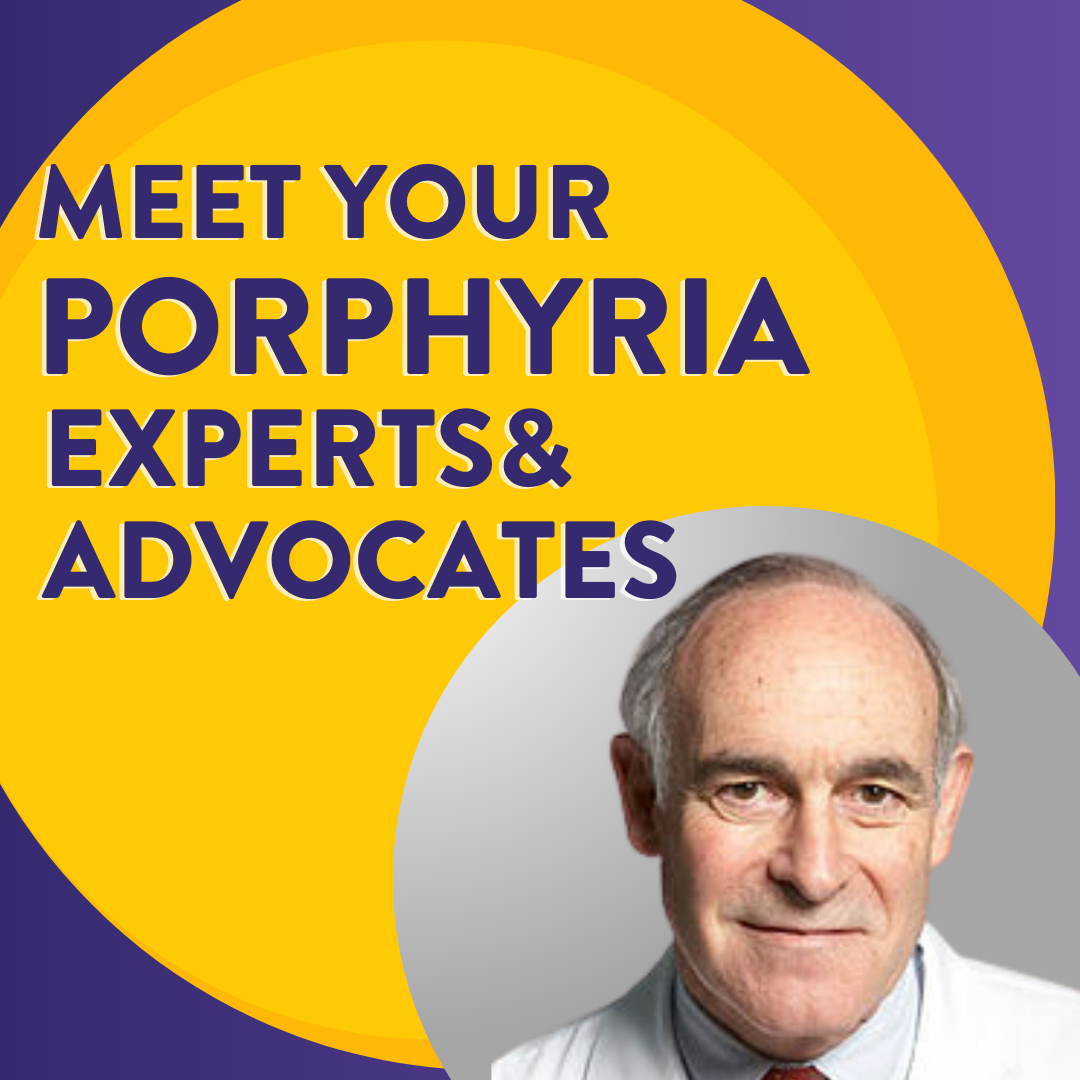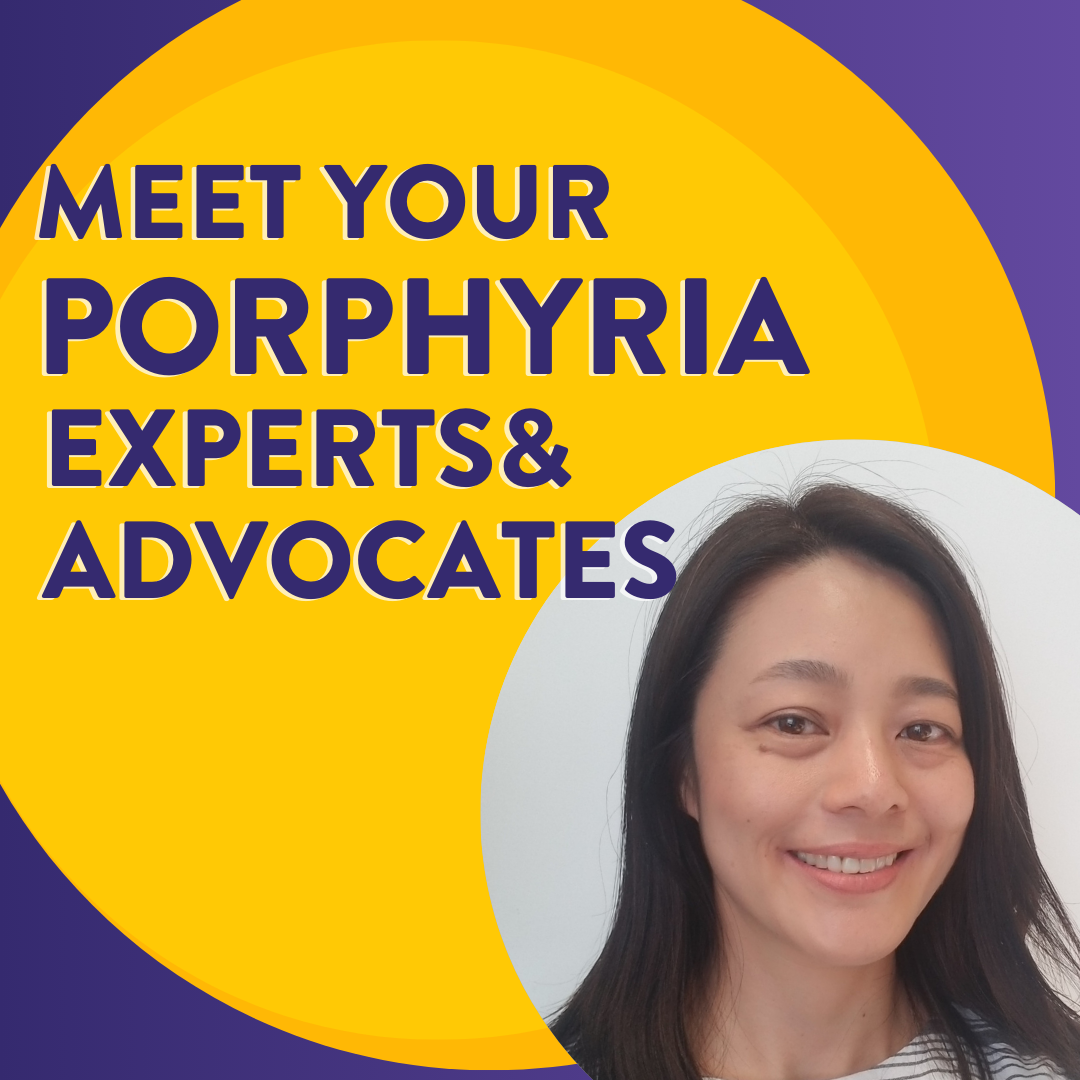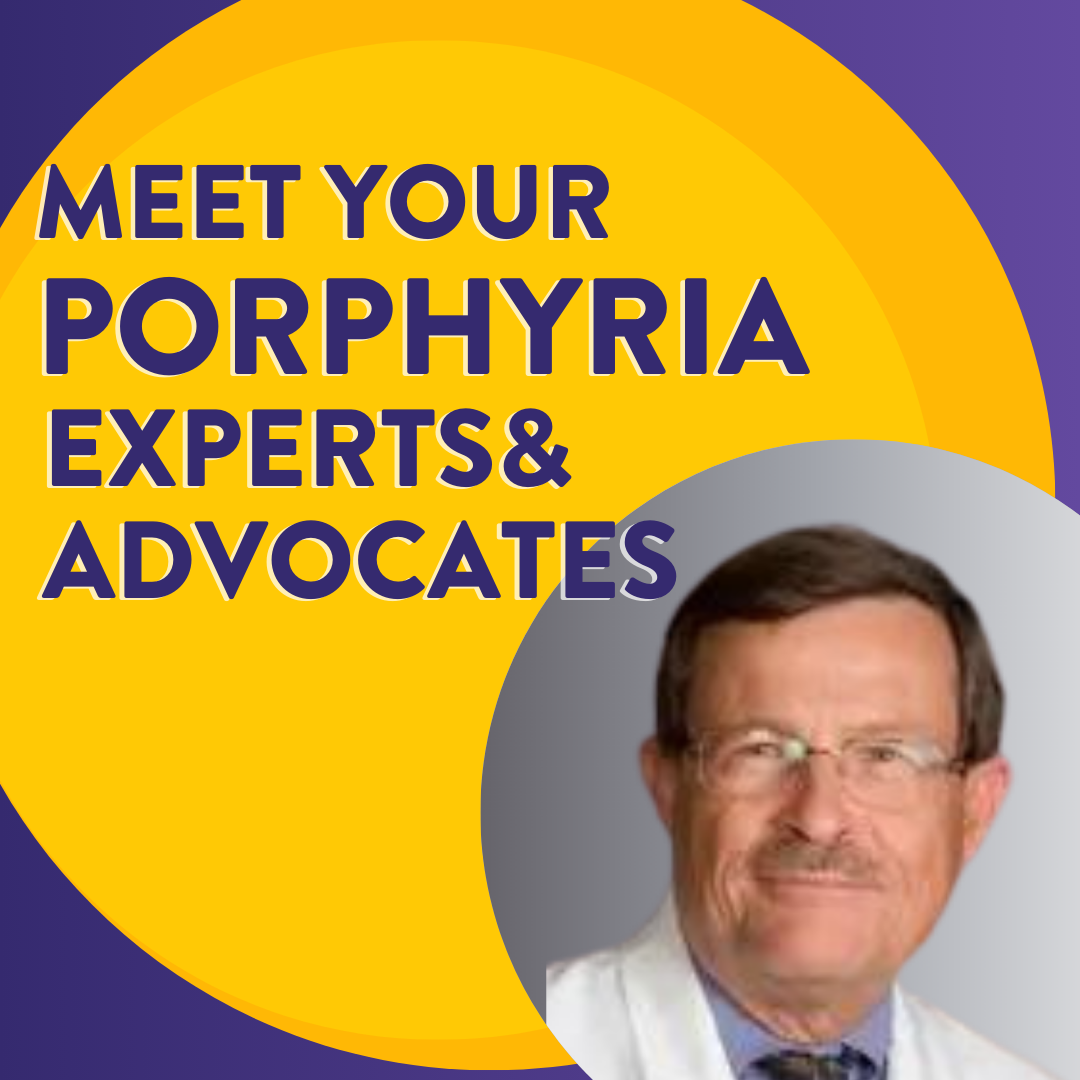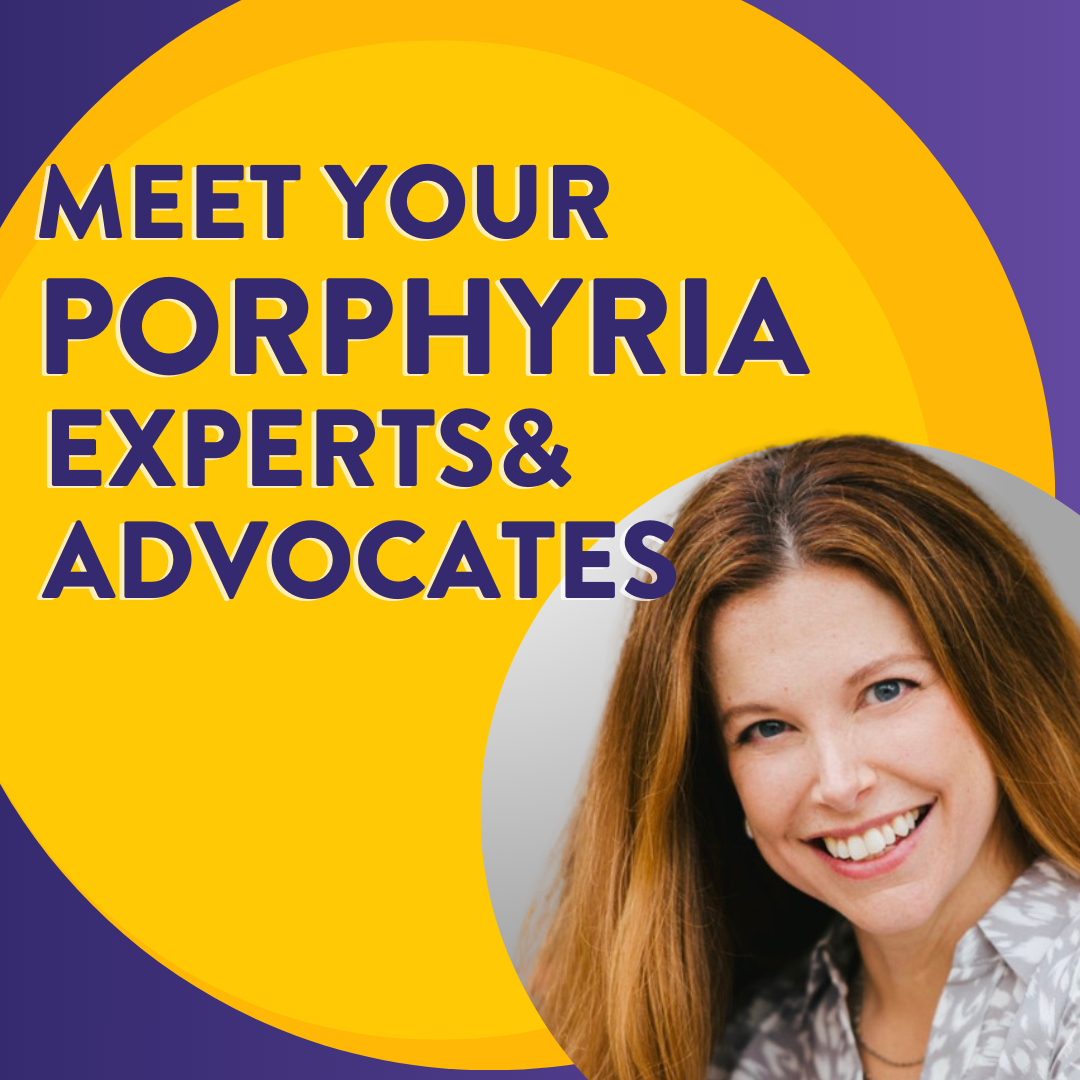Meet Lina Rebeiz, Porphyria Community Builder
The porphyria community is lucky to be supported by dedicated physicians, researchers and advocates who work tirelessly to improve care and develop new treatments for porphyria. The United Porphyrias Association is pleased to introduce you to some of them!
"I think coming to events, if you’re able to travel, is one of the best things you can do. Things are so different once you actually meet other patients with porphyria."
-Lina Rebeiz
Please introduce yourself and tell us a bit about your connection to porphyria.
My name is Lina Rebeiz and I have acute intermittent porphyria (AIP).
I was diagnosed 11 years ago, when I was a freshman in college. I had a very classic AIP presentation with severe abdominal pain. Initially the doctors ignored me. I was a young female, so of course they said it was anxiety. They sent me home, and a few months later I had seizures. I was admitted and my parents, who were both physicians, put a lot of pressure on my doctors to figure it out. Without my parents I am certain I would not have made it out of that.
I was diagnosed in 2014, and since the I’ve been involved in the porphyria community as I can be! I’ve worked in porphyria research, hosted support groups, and am now the Chair of the UPA President’s Council.
Can you tell us more about your involvement in porphyria research? Has being diagnosed with porphyria influenced your career path?
I have been working with Dr. Dickey in Boston as a one of her clinical research coordinators for the past few years. We work on clinical trials and observational studies in all the porphyrias, and it has been incredibly rewarding for me as an AIP patient.
We had industry-sponsored clinicals as well as observational studies. I would help with patient visits, submissions to review boards and all the paperwork involved in research. The most rewarding part has been meeting other patients, through the research and as part of the porphyria clinic. A lot of our patients have never met another porphyria patient, so I love connecting with them. I get to help them and do research and hopefully make a difference.
AIP certainly has impacted my career. It has shaped what I want to do, but it has also been a challenge, because I need to balance my health with my ambitions. I’m at a crossroads in my career right now, but I know that I want to work in healthcare or research.
You’re now the Chair of the UPA’s President’s Council. Can you share a bit about the Council’s role and what you’re working on?
Definitely. The President's Council is a group made-up of patients, caregivers, and people who are deeply connected to the porphyria community. We meet monthly to help direct the UPA’s work, and we have lots of initiatives.
Last year we planned the inaugural Porphyria Palooza in Chicago. It was our first ever conference just for patients and caregivers. It was really new and exciting- having more that 100 members of our porphyria community in one place. It was so nice to get together and not just focus on the science. We talked about navigating the employment space, supporting caregivers, legislation, and other topics we don’t usually get to discuss as a community. The energy was incredible and by the end of the weekend we felt like one big family.
Our next big initiative is planning the Patient & Family Conference which is happening along with a scientific conference in October 2025.
Can you share anything about the plans for the Patient & Family Conference (October 11-12, 2025 in Arlington, VA)?
We want to bring the same energy and buzz as Porphyria Palooza, we want to build a porphyria community that is real and tangible.
We’re going to be doing two days to give us more time to connect. We’re going to go beyond the science to get into challenges and experiences that impact us every day but that we don’t always get to focus on as a community. We hope the event brings our community together and offers a safe space for people affected by porphyria to connect, learn, and unwind. On Saturday evening we’re going to have a dance party!
Do you have any advice for other porphyria patients or for their family members who maybe want to advocate for themselves or get involved in advocacy?
I think the reason I first got involved with the community was because right when I got diagnosed, I went to support meeting. It was one of the first things I did, and it really shaped my eagerness to get involved and to continue to meet patients.
I think coming to events, if you’re able to travel, is one of the best things you can do. Things are so different once you actually meet other patients with porphyria. It's such an isolating disease; any chronic illness is incredibly isolating and incredibly difficult to explain, even to your family. My sister came to Palooza with me and that was phenomenal because it was the first time she had met another patient with porphyria. I've been in the porphyria world for 11 years, I'm used to it, but it was super validating to hear other people say things that I've complained about to my sister, it was the first time she really saw what it was like for me.
The most valuable thing is meeting and talking to others. If you aren’t able to travel, there are other options- we have Connect UP meetings, 1:1 support, and virtual programming. You don’t need to go through this alone!








